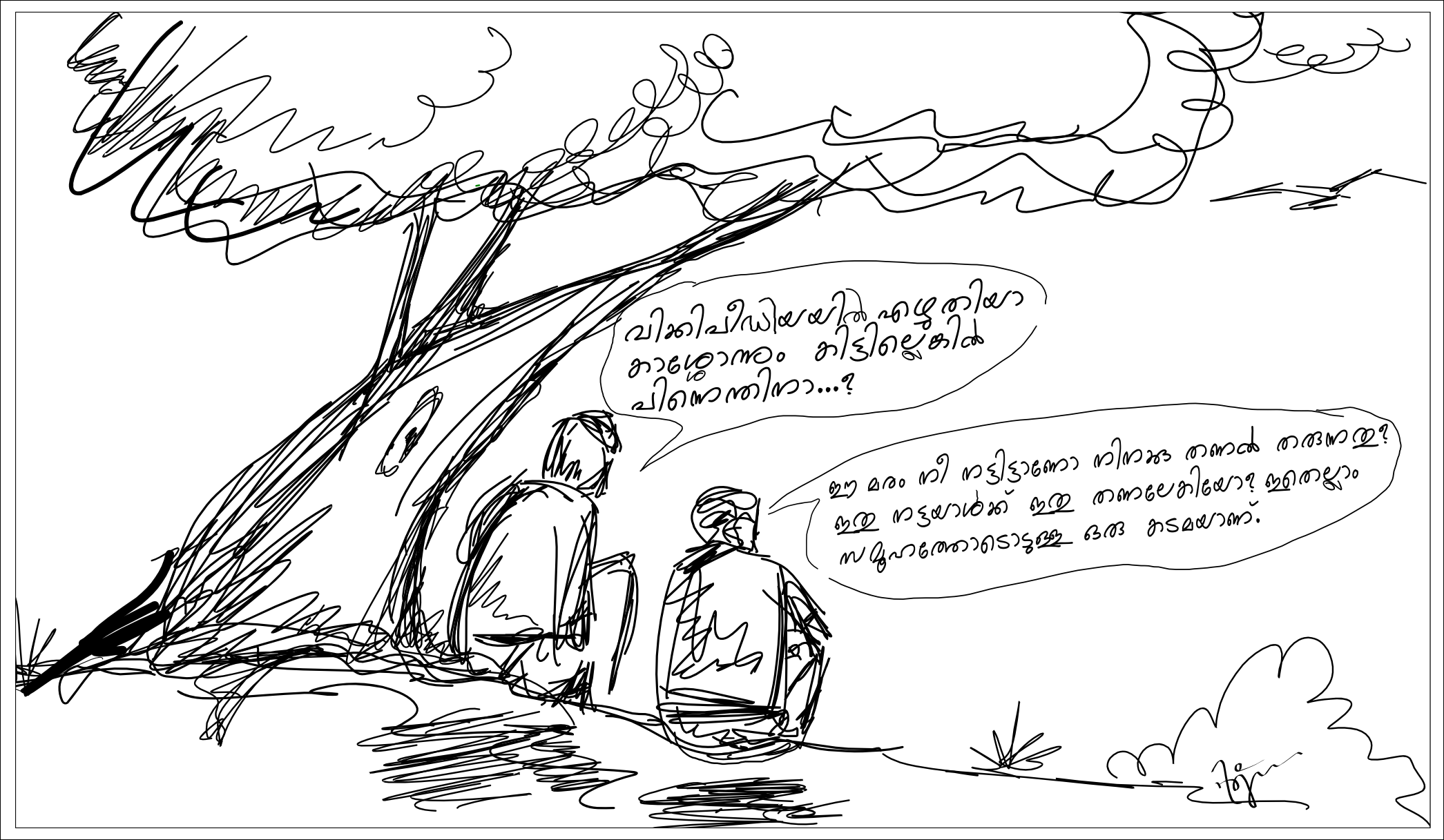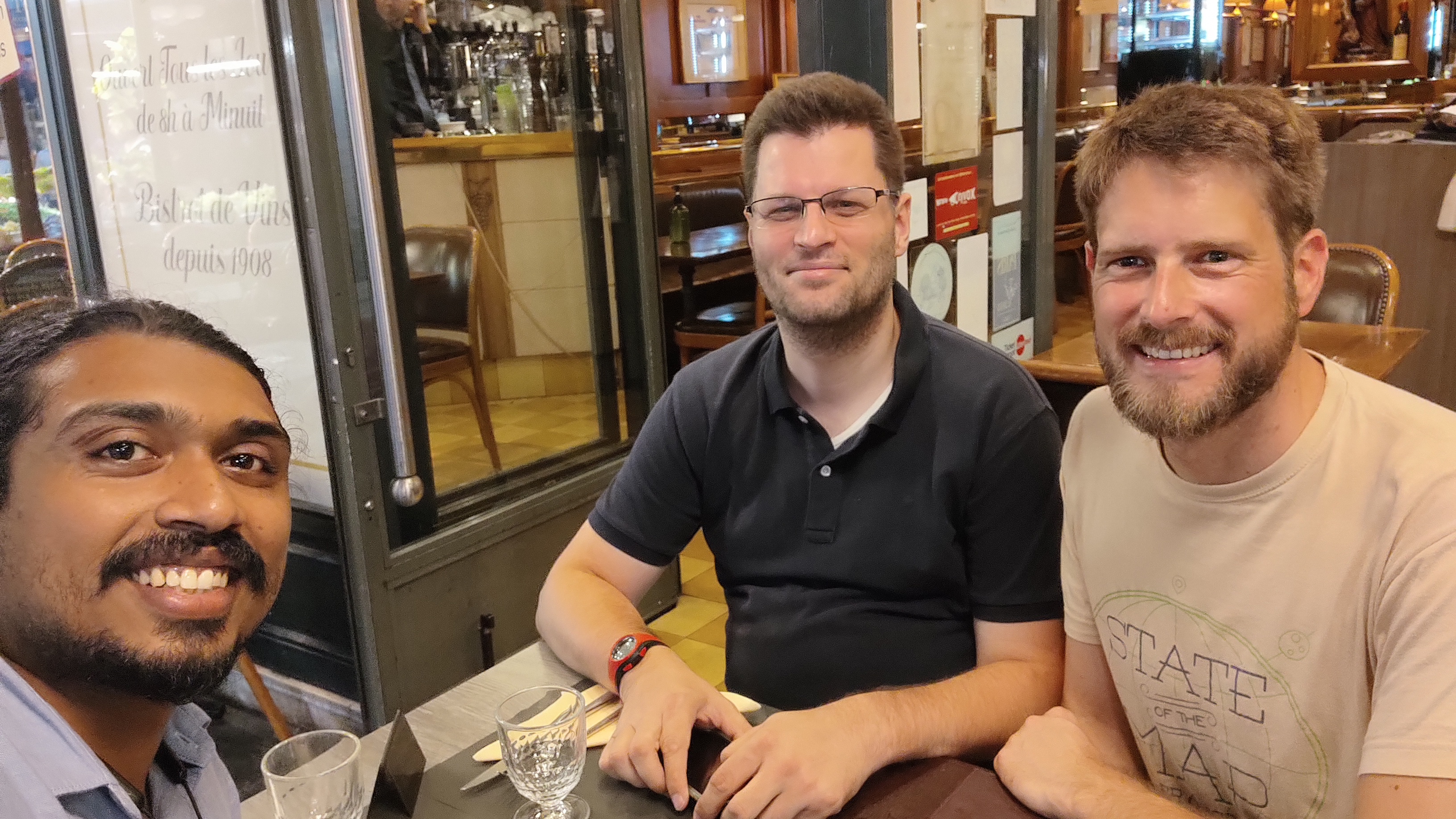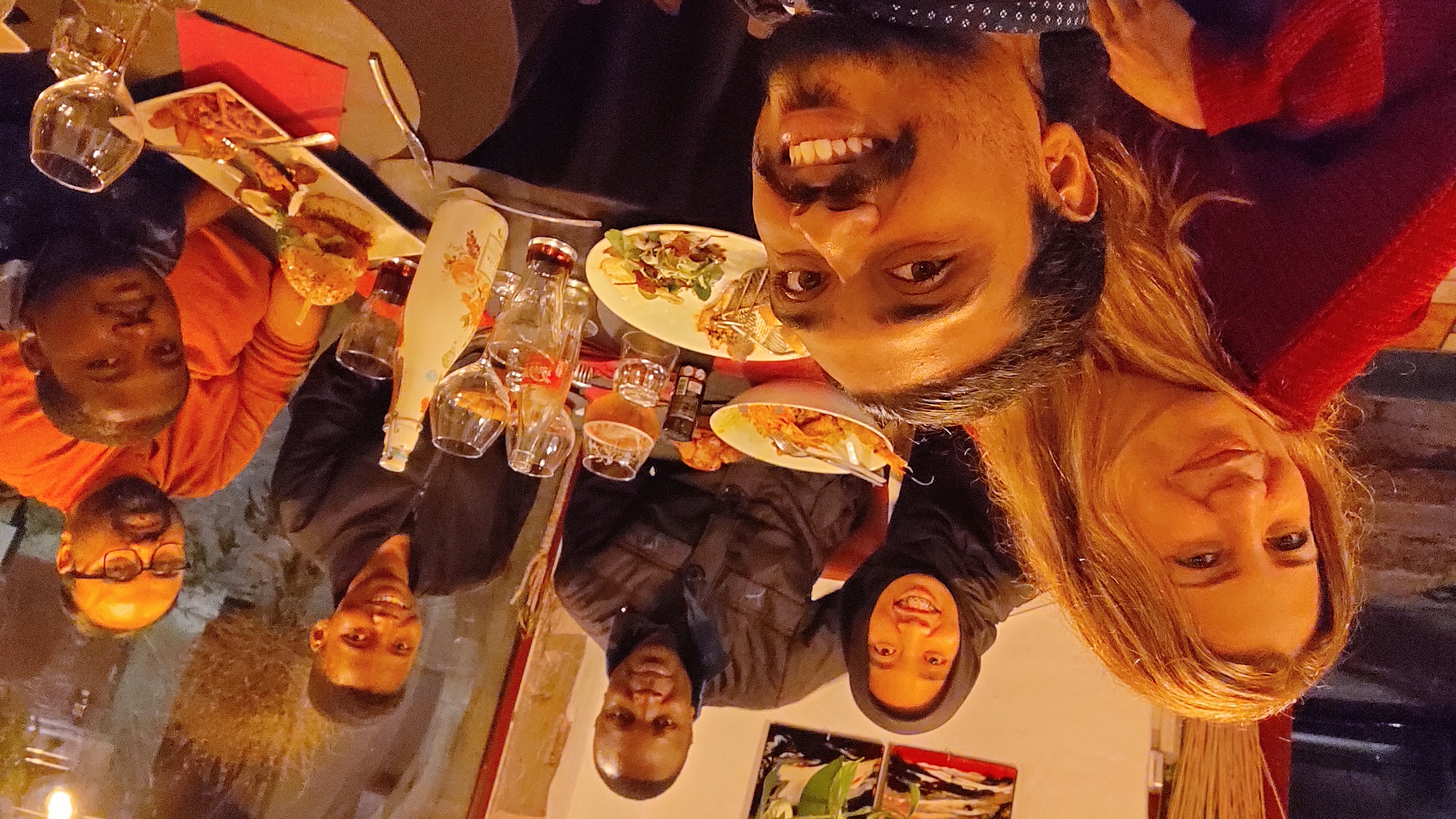From Passion to Purpose: Navigating OSM Contributions
Published: 10 June, 2024
8 mins(s) read
Tags: #OpenStreetMap #Technology
Series: Mapping for Tomorrow: Building Resilience through OpenStreetMap Contributions
Posts from "Mapping for Tomorrow: Building Resilience Through OpenStreetMap Contributions" series:
Table of contents:
In the first part of the series, The Mapping Evolution In My Life I laid out my journey that brought me to OSM, and also made an attempt to discuss the scope of the platform through discussion on “What is OSM?” and “Why OSM?”. In this second part, let us talk about the Motivation for Contributing to OSM, and delve into some OSM Impact Stories.
License: This article is licensed under the Creative Commons Attribution-ShareAlike 4.0 International (CC BY-SA 4.0) license.
The Motivation
Here is a small cartoon (in Malayalam) which I made back in 2013 on contributing to Wikipedia

Cartoon I made on Wikipedia contributions. (High Res image).
This simple cartoon encapsulates a powerful philosophy - contributing to projects like OpenStreetMap is about more than personal or immediate rewards. It’s about creating something valuable for the community and future generations, just like a tree providing shade long after it’s planted. My journey with OSM began with a similar motivation. Although initially driven by the excitement of seeing my name among the lists of contributors on various free and open-source software projects, I quickly started experiencing a deeper sense of fulfilment and recognised the true purpose behind these contributions. It’s not just about personal recognition; it’s about giving back to the community and creating tools and resources that others can build upon, being part of a powerfull movement and moving forward as a collective towards a better future.
What do I get mapping in OSM?
For me the rewards of contributing to OSM are numerous and deep. It can be professional pride, development of skill, or the joy of making a positive impact on communities worldwide.
- The Joy of Mapping: I started editing in OSM out of interest in mapping, which grew into a passion so much so that I now ‘earn my bread’ as the phrase goes with it as a Geospatial Professional. The technical skills and insights I gained through OSM have been invaluable in my career.
- Building Connections: Through my involvement with OSM, I’ve made countless friends across the globe. I can now proudly say that there will be a minimum of three people to host me in each continent. These relationships have enriched my life both professionally and personally.
- Knowledge Sharing: The interactions with the OSM communities across the globe have been a repository of knowledge sharing. I’ve learned so much from my fellow community members about different cultures, new technologies, innovative mapping techniques and a plethora of novel subjects I probably would not have encountered otherwise.
- Recognition and Pride: The happiness when I hear, “Yeah, I know you, I have seen your posts/attended your talks, etc.,” from a person I have never met is immense. It’s a testament to the impact and widespread reach of the work we do.
- Professional Opportunities: I’ve traveled to France and Thailand to attend OSM events, representing the community. Some of the events I was part of organsing committe also. These experiences were not just proud moments but also opened up new professional opportunities and perspectives.

With OSM France members Florian and Donat.

A dinner with Community Represntatives from various OSM Communities in Chambéry
- Societal Impact: Personally, I ran two mapping projects in Kerala, finacially benefiting 12 enthusiastic mappers who took part in these projects with me and providing them with jobs for three months. Seeing my efforts have a tangible impact on local economy and people’s lives is incredibly fulfilling.
Why one should contribute to OSM
If you found reasons mentioned in the section titled ‘Why OSM’ in the part 1 of this blog series - Mapping for Tomorrow: Building Resilience through OpenStreetMap Contributions inadequate, here are some more:
- Community Impact: A collective or a Community can accomplish much more that an individual. Impact of your small efforts can oftentimes have a large impact if channelled and unified through a community, and can quite easily lead to solutions for otherwise intimidating, herculean problems. The power of OSM is just that - the power of community.
An Impact Story: Read about the story of Map Kibera
In 2009 a project conducted in Kibera, one of Africa’s largest slums located in Nairobi, Kenya. Before this project, Kibera was non-existent on the map. Locals were not aware of important aspects about their own community, which slowed down development and aid efforts. The programme by Map Kibera (you absolute legends) gave local youth GPS devices and mapping skills, which soon led to them producing the first open digital maps of Kibera, transforming the perception of both residents and the world. Today, these maps are being used by both local organisations and international agencies for different purposes such as infrastructure development or planning and delivering healthcare services. The project not only put Kibera on a map but also created a feeling of possession and pride amongst its inhabitants.
- Local Knowledge: As a contributor, you have the opportunity to provide valuable insights, local knowledge and a level of accuracy that might not be possible for mapping efforts from distant locations. You know your village or neighbourhood better than outsiders, allowing you to add a local touch, preserve important information, and facilitate faster updates to the map ensuring a place for your locality in the world map. Through OSM, local residents can help build vital databases that support development, disaster response, everyday navigation and countless other strata of societal life, impacting communities worldwide tremendously.
An Impact Story I heard during an event I attended personally: In a country (that shall remain unnamed for obvious reasons) where a civil war was raging, a group of refugees were trying to relocate to a distant, safer place. Just hours before the start of their planned journey, they realise through contributions made by locals on OSM that a bridge in their planned route had been destroyed by the opposition. They changed their route and reached their destination safely. Even if this story sounds far-fetched or made up, the underlying possibility is the same. This scenario highlights the extent of real-world impact of local knowledge and community collaboration in mapping projects can have in saving lives.
- Disaster Response and Emergency Planning: OSM has played a crucial role in disaster response and emergency planning globally. OSM data alerts authorities to critical infrastructure damage, aiding in swift response and potentially saving lives during natural disasters or civil emergencies.
An Impact Story as someone from India and being part of many disaster response programs through OSM let me reveal some impact stories we had in India. During the Chennai floods of 2015, crowd-sourced maps of flooded streets developed by an OSM Volunteer and powered by the entire community were used by government officials to navigate emergency vehicles and deliver aid efficiently. Similar efforts during the Kerala floods of 2018 and 2019 demonstrated the power of collaborative mapping in crisis situations. OSM contributors worldwide have come together to support relief efforts during various crises, such as for the earthquake response in Syria-Turkey, tsunami rescue operations in Indonesia, and many more.
-
Humanitarian Aid: Organisations like The Humanitarian OpenStreetMap Team (HOT) has been instrumental in using OSM for humanitarian aid. For instance, after the 2010 Haiti earthquake, HOT volunteers mapped roads, buildings, and refugee camps to assist aid organizations. These were critical in directing resources to where they were most needed.
-
Global Collaboration and Open Data Advocacy: Contributing to OSM fosters global collaboration, where individuals from diverse backgrounds come together to create a comprehensive and detailed map of the world. This collaborative effort promotes open data principles, transparency, and accessibility of geographic information. These data are now the primary training data for many of the ML models and datasets released.
-
Personal Growth and Satisfaction: Contributing to OSM can lead to personal growth, satisfaction, and a sense of accomplishment. By contributing to OSM, you not only contribute to a valuable resource for navigation and planning but also become part of a global community working towards a common goal of accessible and accurate geographic information.
In short, contributing to OpenStreetMap is not just about mapping roads and buildings; it’s about creating a global resource that empowers communities, fosters collaboration, and saves lives in critical situations especially in the place where there is no mapping interest for commercial mapping companies.
I will be writing about the following in the next (and possibly the final) part.
- Professional and Career Opportunities in OpenStreetMap
- Getting Started with OpenStreetMap
Let me know your suggestions on any other topics you think I should cover in the next part and also your thoughts and feedback @arkarjun. Stay tuned for the third part.